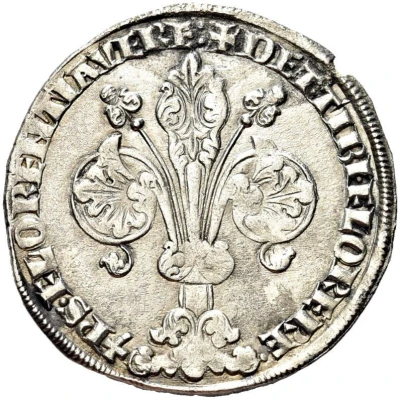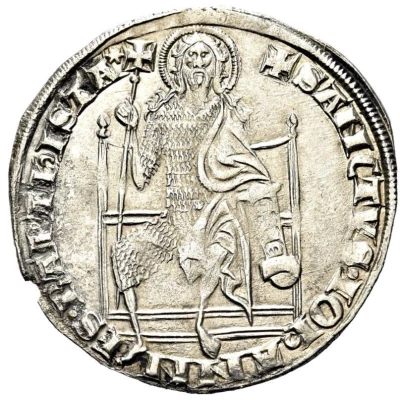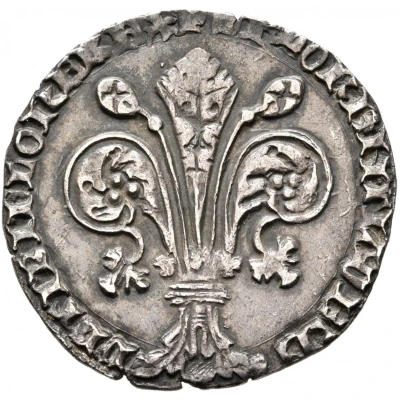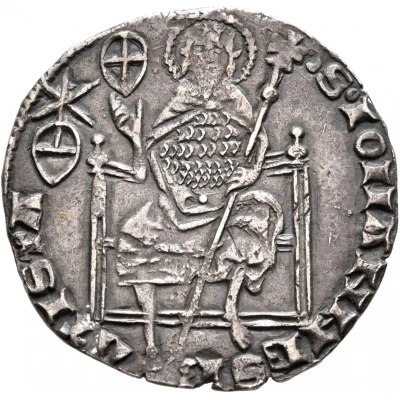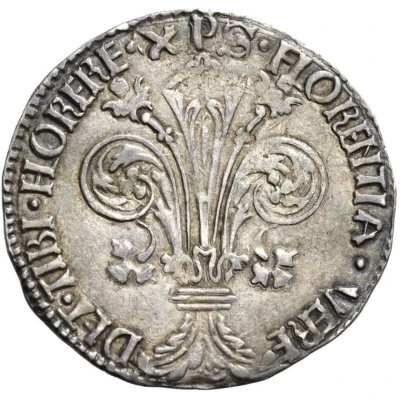
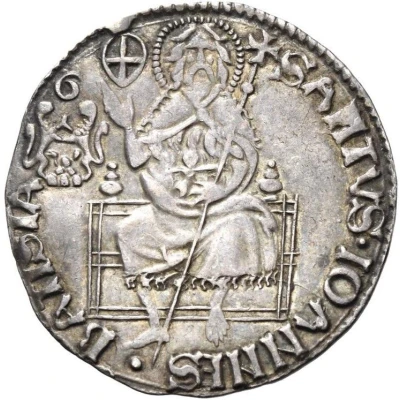

Grosso Guelfo of 5 Soldi 6 Denari ND
| Silver (.9583) | 2.3 g | 24 mm |
| Issuer | Republic of Florence (Italian States) |
|---|---|
| Period | Republic of Florence (1115-1532) |
| Type | Standard circulation coin |
| Years | 1448-1454 |
| Value | 5 Soldi 4 Denari (4⁄15) |
| Currency | Fiorino (1115-1532) |
| Composition | Silver (.9583) |
| Weight | 2.3 g |
| Diameter | 24 mm |
| Shape | Round (irregular) |
| Technique | Hammered |
| Demonetized | Yes |
| Updated | 2024-10-05 |
| Numista | N#409806 |
|---|---|
| Rarity index | 97% |
Reverse
Saint John the Baptist, nimbate and enthroned, right hand raised in benediction with Guelph arms at fingertips, and cross-tipped staff on his left shoulder. Right foot divides legend, which ends with mintmaster's mark
Script: Latin
Lettering: · SANTVS · IOANNES · BATISTA
Engraver: Giovanni di Amerigo Benci
Comment
Spelling variants are known.
Correspondance of dates and mint master's marks:
1452 - 2d semester MIR 61/9 (main photos). Benci arms with letter G above (for Giovanni Benci)
1453 - 1st semester MIR 61/10. Shield divided vertically (for Simone di Francesco di Simone Guidicci)
© Numismatica Ranieri
1453 - 2d semester MIR 61/11. Shield with rampant lion left, letter A above (for Alessandro di Antonio di Iacopo Del Vigna):
© Classical Numismatic Group
1454 - 1st semester MIR 61/12. Rampant wolf left, letter R above (for Roberto Altoviti):
© Numismatica Ranieri
Interesting fact
One interesting fact about the Grosso Guelfo of 5 Soldi 6 Denari ND (1448-1454) from Republic of Florence (Italian States) is that it was minted during a time of great economic and political change in Italy. The coin was issued during the reign of Cosimo de' Medici, also known as Cosimo the Elder, who was a powerful banker and politician who played a significant role in the rise of the Medici family and the city of Florence. The coin's design features the image of Saint John the Baptist, the patron saint of Florence, on one side, and the Florentine lily on the other, symbolizing the city's independence and prosperity. Despite its small size, this coin is a valuable piece of history that reflects the economic and political changes that were taking place in Italy during the 15th century.



